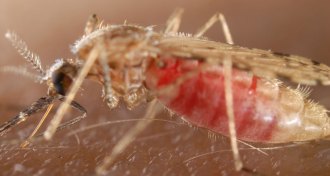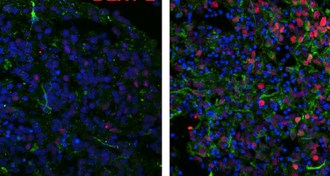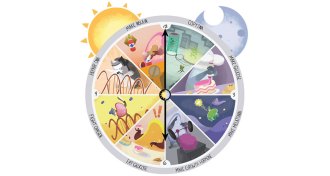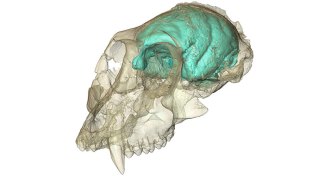Humans
Sign up for our newsletter
We summarize the week's scientific breakthroughs every Thursday.
-
 Health & Medicine
Health & MedicineThe weekly grind of social jetlag could be a weighty issue
Even those of us with nine-to-five jobs don’t always respect our body’s clocks. Research shows that even slight disruptions might be associated with obesity.
-
 Health & Medicine
Health & MedicineMosquitoes can get a double dose of malaria
Carrying malaria may make mosquitoes more susceptible to infection with a second strain of the parasite that causes the disease.
-
 Neuroscience
NeuroscienceBundles of cells hint at biological differences of autistic brains
Using miniature organoids that mimic the human brain, scientists have identified developmental differences between autistic children and their non-autistic family members.
-
 Health & Medicine
Health & MedicineIn children, a sense of time starts early
Minutes, hours, days and years start to take on new meaning as children acquire a deeper concept of time.
-
 Life
LifeShifted waking hours may pave the way to shifting metabolism
Shift workers are at higher risk for obesity and metabolic problems. Scientists are working hard to understand why the night shift makes our hormones go awry.
-
 Life
LifeThe origin of biological clocks
Most of Earth’s creatures keep time with the planet’s day/night cycle. Scientists are still debating how and why the circadian clocks that govern biological timekeeping evolved.
-
 Anthropology
AnthropologyTooth, jaw fossils tell tale of North America’s last nonhuman primates
Oregon fossils provide new clues to North America’s last nonhuman primates.
By Bruce Bower -
 Health & Medicine
Health & MedicinePotential pain treatment’s mechanism deciphered
Scientists have new insight as to how a class of environment-sensing bone marrow cells can help safely relieve pain.
-
 Science & Society
Science & SocietyHow English became science’s lingua franca
A new book explores the roles of war, politics and economics in the rise of English in scientific communication.
-
 Anthropology
AnthropologyMonkey’s small brain shows surprising folds
An ancient monkey’s tiny brain developed folds, raising questions about primate evolution.
By Bruce Bower -
 Life
LifeWomen blush when ovulating, and it doesn’t matter a bit
Women don’t signal their fertility in obvious ways like nonhuman primates. A new study shows that even skin flushes are too subtle to detect.
-
 Genetics
GeneticsGene therapy restores hearing in mice
Scientists have used gene therapy to restore hearing in deaf mice.